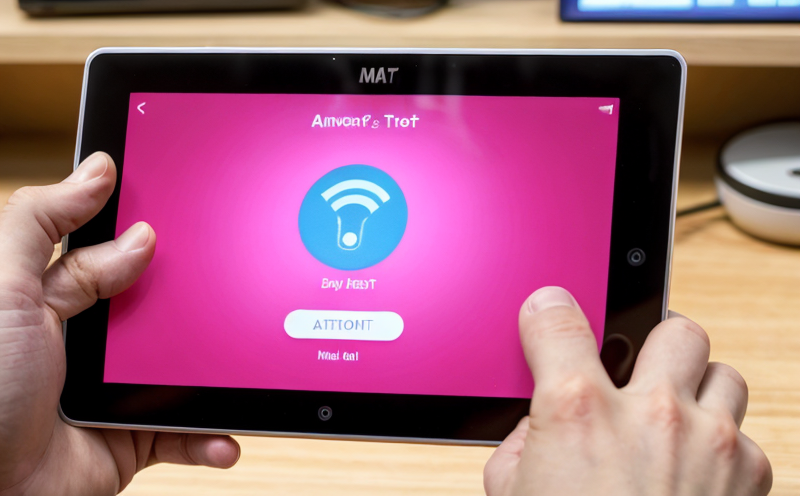GPS Accuracy Testing in Smart Consumer Devices
In today's rapidly evolving technological landscape, smart consumer devices have become an integral part of daily life. These include a wide range of products such as wearables, smartphones, and smart home devices that rely on global positioning systems (GPS) for accurate location data. The accuracy of GPS in these devices is crucial not only for enhancing user experience but also for ensuring compliance with international standards.
Consumer product safety testing focuses on identifying potential risks and ensuring that products meet specified safety requirements before they reach the market. Within this context, GPS accuracy testing plays a critical role in safeguarding consumer health and wellbeing by verifying that devices provide reliable location data under various environmental conditions. This article delves into the intricacies of GPS accuracy testing in smart consumer devices, its benefits, customer impact, sustainability contributions, and frequently asked questions.
GPS technology is essential for applications like navigation, tracking, and real-time monitoring. However, achieving consistent accuracy can be challenging due to factors such as signal interference, atmospheric conditions, and device-specific limitations. To ensure reliability, manufacturers must undergo rigorous testing before releasing products. This process involves using specialized equipment and adhering to international standards that define acceptable error margins.
The testing procedure typically begins with selecting representative specimens from the production batch. These devices are then subjected to a series of environmental stress tests designed to simulate real-world usage scenarios. Key parameters measured include horizontal dilution of precision (HDOP), vertical dilution of precision (VDOP), and position accuracy over time.
Accurate GPS data is vital for applications like fitness tracking, location-based services, emergency response systems, and autonomous driving. A single error could lead to significant discrepancies in user experience or even safety hazards. Therefore, it's imperative that manufacturers invest in thorough testing to maintain high standards of performance.
Compliance with international standards such as ISO 19725:2013 ensures that the devices meet global quality benchmarks. Additionally, adherence to these guidelines helps protect consumers by reducing the risk of accidents or misinformation caused by inaccurate location data.
Manufacturers must also consider user privacy when implementing GPS features in their products. With growing concerns over personal data protection, it's crucial to design systems that respect users' rights while still providing valuable functionality. By prioritizing privacy and security, companies can build trust with consumers and foster long-term loyalty.
Benefits of GPS Accuracy Testing in Smart Consumer Devices
Accurate GPS data enhances the overall user experience by ensuring reliable performance across different environments. For instance, when used in fitness trackers, precise location information can help users track their exercise routes more accurately. In autonomous vehicles, accurate GPS signals are critical for safe operation and navigation through complex urban landscapes.
Beyond improving用户体验





